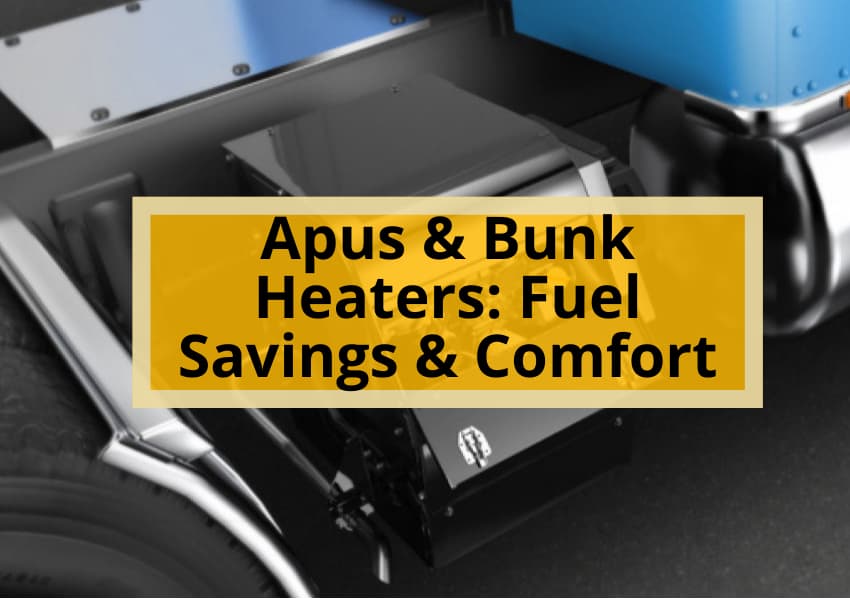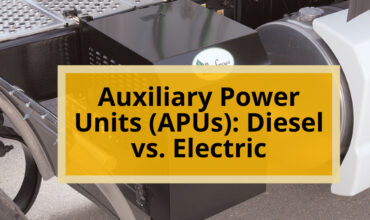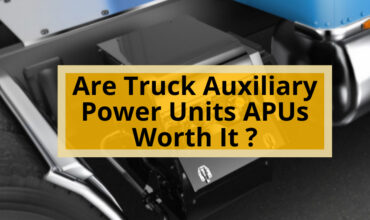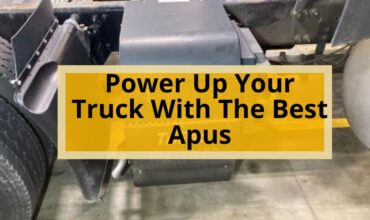An Auxiliary Power Unit (APU) and bunk heater are two essential components of a truck’s heating and cooling system. An APU is a device that provides power to the vehicle while the engine is off, allowing the driver to maintain a comfortable temperature in the cab without idling the engine.
A bunk heater, on the other hand, is a heating system that operates independently of the engine, providing warmth to the sleeper compartment in cold weather conditions.
The use of APUs and bunk heaters can provide significant fuel savings and comfort for truck drivers. Not only do they help reduce fuel consumption and emissions, but they also enhance the overall driving experience by providing a comfortable temperature in the cab and sleeper compartment.
In this article, we will delve into the definition and function of APUs and bunk heaters, the benefits of using them, and tips on how to properly maintain and troubleshoot these systems. By the end of this article, readers will have a comprehensive understanding of how these units can help them save money and stay comfortable while on the road.
What is an APU?
An APU, which stands for Auxiliary Power Unit, is a device commonly used in various industries including trucking, aviation, and marine.
In the context of trucking, an APU is a small engine located outside the truck’s cab that is designed to provide power to the vehicle’s electrical systems and climate control while the main engine is turned off. This feature significantly reduces fuel consumption and emissions, as traditional idling can consume up to a gallon of fuel per hour, adding up to significant costs over time.
Compared to traditional idling, using an APU can save significant amounts of money and reduce carbon emissions. The cost of idling a truck for ten hours per day, five days a week, is estimated to be around $4,000 per year. In contrast, the cost of running an APU for the same amount of time is less than $1,000 per year.
This comparison highlights the cost-effectiveness of investing in an APU for trucking companies and independent contractors.

How Does an APU Work?
The operation of an Auxiliary Power Unit can be explained through the principle of converting stored energy into usable electrical power, which can then be used to power various electrical components on a truck. The APU does this by utilizing a small diesel engine that is connected to a generator, which produces the electricity needed to power the truck’s electronics. The APU also includes a battery pack that stores energy generated by the engine, which can be used during periods of low engine usage or while the truck is idling. Additionally, the APU includes a heating and cooling system that can be used to regulate the temperature in the truck’s cab, eliminating the need for idling the engine to maintain a comfortable temperature.
The APU components include the diesel engine, generator, battery pack, and heating and cooling system. The APU installation process involves mounting the APU on the truck’s frame rails, connecting it to the fuel system, and running electrical wiring to the truck’s battery and electronics. Proper installation and maintenance are crucial for optimal performance and fuel savings. A well-maintained APU can save truck drivers up to $10,000 per year in fuel costs, while also reducing engine wear and tear and extending the life of the truck.
also read : Choosing The Right Inverter: Powering Your Appliances Safely
Maintenance and Troubleshooting Tips
Proper maintenance and troubleshooting are essential for ensuring that Auxiliary Power Units (APUs) operate efficiently and effectively. As with any complex mechanical system, APUs require regular maintenance to keep them in good working order. This includes tasks such as changing the oil, air filter, and fuel filter, as well as checking the coolant level and inspecting the battery. Neglecting routine maintenance can lead to a decrease in fuel efficiency, increased emissions, and even mechanical failure.
In addition to regular maintenance, knowing how to troubleshoot common issues with APUs can save time and money. Some common problems that truck drivers may encounter with APUs include electrical issues, poor fuel economy, and strange noises. Troubleshooting techniques may involve checking for loose connections, inspecting the wiring for damage, and replacing worn or damaged parts.
By staying on top of routine maintenance and knowing how to troubleshoot common issues, truck drivers can ensure that their APUs operate smoothly and efficiently, providing both fuel savings and comfort on the road.
Regular maintenance tasks include:
- Changing oil
- Air filter replacement
- Fuel filter replacement
- Checking coolant level
- Inspecting battery
Neglecting routine maintenance can lead to:
- Decreased fuel efficiency
- Increased emissions
- Mechanical failure
Common issues with APUs may include:
- Electrical problems
- Poor fuel economy
- Strange noises
Troubleshooting techniques may involve:
- Checking for loose connections
- Inspecting wiring for damage
- Replacing worn or damaged parts
Knowing how to troubleshoot common issues can save time and money.
Frequently Asked Questions
Are there any safety concerns with using an APU or bunk heater in a truck?
“Like any other equipment in a truck, APUs and bunk heaters can pose safety concerns if not maintained properly. Regular inspections, cleanings, and fuel treatments can prevent accidents and ensure safe operation.” ‘It is important to follow the manufacturer’s recommended maintenance schedule and seek professional assistance if any issues arise.’
Can you install an APU or bunk heater in an older truck model?
The installation of APUs and bunk heaters in older truck models depends on their compatibility. A professional installation process is required to ensure proper functioning of the equipment.
What is the average lifespan of an APU or bunk heater?
The average lifespan of an APU or bunk heater is approximately 5 years with proper maintenance. Regular maintenance, such as fuel treatment, filter replacement, and electrical checks, can extend the lifespan and prevent costly repairs.
Are there any government regulations or incentives related to using APUs and bunk heaters?
There are various government regulations and incentives related to using APUs and bunk heaters. These include grants, tax credits, and exemptions from idling restrictions, aimed at reducing greenhouse gas emissions and improving fuel efficiency.
Can you use an APU or bunk heater while driving or only when parked?
Using an APU or bunk heater while driving is not recommended, as it can be dangerous and may damage the equipment. However, when parked, these devices provide benefits such as fuel savings and increased driver comfort.






